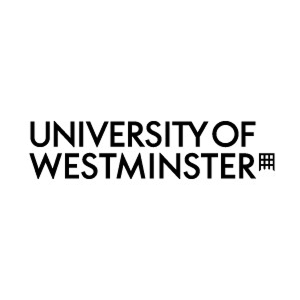
Make employability meaningful: developing soft skills with social justice work
You may also like
Should we be more cynical of the rise of employability in higher education? While we all want our students to find interesting, satisfying and fairly paid jobs after they graduate, the employability agenda has contributed to the instrumentalisation of education and the ranking of universities and degree programmes based on crude and short-sighted metrics of graduate employment outcomes.
We are right, therefore, to resist the reframing of too much of our content, assessments and learning outcomes in terms of employability. But there is good reason for embedding these skills and opportunities within the syllabus, so long as it comes alongside sufficient investment. The alternative is that internships and placements – and the confidence that comes with these experiences – will remain open only to those with the social capital, not to mention the actual money, required to secure and sustain them.
Partnering with charities
Since 2023, we have been developing a series of projects at our Centre for Social Justice Research, designed to engage critically with the growing demand for students to gain employability skills and experiences. All undergraduate students are required to complete 35 hours of work-based learning as part of their core modules in second or third year, but meaningful opportunities can be hard to come by.
- Spotlight guide: Soft skills for hard times
- Build foundations for university-industry partnerships in 90 days
- Is graduate employability a core university priority?
The projects we have developed involve collaborations with some of the UK’s leading social justice organisations. They provide students with the opportunity to learn about the charity they are paired with and the political landscape in which they operate, and make a genuine contribution to their work. Partnerships have been developed with the human rights charity INQUEST, the criminal justice charity Women in Prison, the anti-militarism charity Campaign Against Arms Trade and the detention support network the Association of Visitors to Immigration Detainees.
The model begins with an academic lead partnering with a social justice organisation they have experience working with through their research. Together they plan a six- to 10-week programme for 10 students, based on a four- to six-hour commitment each week. Weekly sessions take place both on and off-site, and the programmes involve a combination of institutional visits, presentations on the work of the charity and skills workshops delivered by experienced practitioners and lifelong campaigners. Students then use the skills they have learned to undertake a variety of research, administrative or public engagement tasks designed to support and amplify the partner organisation in their social justice work. They are supported in these tasks by a paid project coordinator (usually a PhD student) and the academic lead.
Over the past three years, for example, more than 30 students at Westminster have taken part in the collaboration with INQUEST, contributing to a National Lottery Heritage Funded project documenting the organisation’s 40+ year history. Students have received training to support the cataloguing of INQUEST’s material archive at the Bishopsgate Institute, the scanning of documents for the charity’s new digital archive and the coding of oral history transcripts for use in the award-winning podcast, Unlawful Killing. They have gone on to organise and present at public events and film screenings, and written blog posts based on their own research.
Our experience shows that students benefit greatly from working alongside those from other years (both undergrad and master’s) and across different degree programmes. They enjoy the opportunity to learn off-campus and hear the different education and work experience journeys of the practitioners they meet. As 2023 alumnus Alen Melero Yerinkova reflected: “I picked my degree because I wanted to change the world…the internship with INQUEST gave me a focus…I realised that you can do meaningful work.”
The projects are designed to provide a supportive pathway for students who might not otherwise have the opportunity to gain experience working within a deeply underfunded social justice sector. Prior to submitting applications, students can attend advice and support sessions on CV and cover letter writing, and on completion we give advice on how to present their experience and the skills they have developed in future job applications. Students are also invited to apply for a series of paid internships (50 hours each) with the collaborating organisations over the summer semester.
Since 2023, more than 80 students have been able to benefit from collaborations with four different organisations, with alumni of the projects going on to begin careers in the social justice sector. Providing meaningful employability opportunities requires time and funding, something we have been grateful to receive from the Quintin Hogg Trust (£57,000 over two years). If universities are to make employability a priority, they need to support staff to develop these types of projects, rather than crudely bolting it onto existing modules.
While we might be critical of the employability agenda, the development of soft skills is not just about securing a job after graduation or marketing yourself on LinkedIn. This is particularly true for current and incoming cohorts adversely affected by the longer-term impacts of the Covid-19 pandemic. In the context of escalating and interlinked global crises – from climate change to economic instability and war to the cost of living – the development of soft skills offer a route for students to build confidence, empathy and resilience.
Jac St John is lecturer in politics and international relations at the University of Westminster. Naomi Oppenheim is team lead for Centre for Social Justice Research collaborations at the University of Westminster and heritage project manager at INQUEST.
If you would like advice and insight from academics and university staff delivered direct to your inbox each week, sign up for the Campus newsletter.




